Centralized Catalog, Faster Publishing: 40ParkLane’s Marketplace Success with CedCommerce
Reading Time: 4 minutesAbout the Brand: 40ParkLane LLC Studio40ParkLane is a design-led print-on-demand brand created…
Shopify vs. Etsy, which one is the best choice as a platform to kickstart my online selling journey? Which will not burn a hole in my pocket in the long run? Does Etsy require me to be more tech-savvy, or does Shopify? If you find these questions bothering you daily and are in a dilemma, unable to start selling online.
But, no need to panic.
Let’s delve deeper into the nitty gritty of Etsy and Shopify
Shopify and Etsy, both platforms have opened a realm of opportunities for millions of aspiring sellers to set-up their businesses online. Since launch of both these platforms was around the same time, many sellers started to compare both, and hence the ‘Etsy vs Shopify’ debate came into existence.
But if you think rationally, the entire Shopify vs Etsy debate makes no sense because both the platforms are fundamentally different. These fulfill the different eCommerce needs. In this blog, we will discuss Etsy and Shopify in detail, and by the end, you will be able to decide your business’ next big move!
Pretty much everything! Since both platforms ultimately allow businesses to create and manage eCommerce stores, they appear to be very similar. Many times, sellers unknowingly choose the less suitable for their business needs. Knowing the major difference between Shopify and Etsy is important to avoid making that blunder.
Let’s discuss them one by one for a deeper understanding
Let’s break down the fee based on different types to quickly understand which is more affordable from a seller’s perspective.
Subscription Fee – Shopify subscription fee start at as low as $5 while Etsy subscription fee is optional
Shopify does not charge any listing fee, whereas Etsy sellers pay a $0.2 listing fee for every product
Transaction Fee
Depending on the payment gateway, it varies between 0.5% – 2% for Shopify merchants. But, the merchants’ option for Shopify Payments need not pay the transaction fee.
Etsy sellers pay 6.5% as a transaction fee.
Payment Processing Fee
This fee is almost identical for Shopify and Etsy sellers.
There are three types of payment processing fees for Shopify sellers.
Other Costs
The sellers will pay additional fees apart from the above fee.
Shopify Seller
Etsy Seller
The above figures give a comprehensive overview of different fee types to be paid by the seller. Hence, it made it easy to understand the nitty gritty about the price plan of Etsy and Shopify.
Etsy’s price plan might put an extra burden on sellers. But, it can be lowered by improving SEO (as it will save on advertising fees) and increasing the product price to generate high profits.
The major difference between the two lies in their nature and functioning. While Etsy is a marketplace that allows different sellers to set-up their shops and sell under one single platform. Shopify is a framework that allows you to create your own eCommerce store as a brand shop.
Marketplaces are similar to any physical market, where hundreds and thousands of sellers come together to showcase their products. Etsy has about 3.5 million active sellers, and Shopify has powered more than 800k standalone stores worldwide. Most marketplaces are usually specific about the products selling through them. Whereas frameworks (Shopify) can be used to create a store irrespective of the product types. Etsy allows sellers to sell products belonging to the handmade, vintage, and creative item categories. Whereas, there are no such restrictions when a seller plans to sell through a Shopify powered eCommerce store.
Being a marketplace and a framework respectively, Etsy and Shopify are fundamentally different. Both have their sets of perks depending upon what your current business goals are.
Spoiler alert! Etsy wins.
Both platforms are equally popular over the internet. But here we are talking about the extent of exposure that they can provide your products and ultimately to your business. Both Etsy and Shopify let you engage with millions of buyers online but the path and process to build an audience and attract traffic to your page differs. It’s comparatively easier for Etsy sellers considering the goal of Etsy, like any other marketplace, is to match sellers and buyers and catalyze more and more transactions.
In its third quarterly report of 2020, Etsy reported having about 70 million active users purchasing goods from the platform. In contrast, building traffic on a standalone website is comparatively difficult and requires vigorous work to reach a large audience. Remember, it’s difficult, not impossible. With the right digital marketing tools and practices, you can expand the reach of your online store in a very short time.
Stores on marketplaces are like rented shops in a mall. The website decides the terms and conditions of your shop. What you sell, how you showcase your products, and how you will receive payments.
It is under marketplace control and has very little to do with the actual seller. That’s ideal for sellers who wish to avoid the technicalities of selling online, but can be an issue for sellers who want control over how their stores appear and run.
Also, Etsy has some distinctive seller policies, make sure you read about them before opening your shop on Etsy.
Websites on the other hand give you much-extended (almost complete) control over your shop’s policies and functioning. It becomes a major reason for sellers with the vision of building a brand to create their web store, giving them full control and ownership of their stores.
One more thing, your Etsy store doesn’t have a domain of its own. You get a URL like so- https://www.etsy.com/in-en/shop/YourShopName. While an online store has a domain name of its own, for example, www.StoreName.com.
Etsy offers you all the resources and tools to showcase your listing, engage with your audience, and fulfill orders online. Even though Etsy offers the best services, you cannot change it as per your business or creative needs.
On the other hand, every store at Shopify is created by the seller from scratch, you choose how your store will look and run. And it’s never final, you can keep evolving your store with the newest themes and trends. In short, your vision is much easier to realize with an online store.
Both the platforms have different ways of charging the sellers for their services. With Etsy, it’s a continuous process, since you pay different fees while selling on the platforms. Each seller must pay major fees on Etsy, including the listing fee, transaction fee, shipping fee, payment processing fee, advertising fee, and others.
They seem minimal while starting but keep growing with your business. Sellers decide their product prices considering all the expenditure per order.
The story is a bit different with Shopify as it’s a subscription-based platform, you can choose from the different subscription plans according to your needs. The basic version works well for beginners who dream to expand their businesses through an online store.
Like said before, Etsy is a marketplace where sellers list their handmade, crafting, and vintage items. So that makes it the major filter for who should sell on Etsy. If your product category is not one of these items, you should just drop the idea of selling on Etsy and find another marketplace suiting your product.
Secondly, Etsy will display your products to millions of people, saving you from all the marketing headaches. But you will still have to invest time in Etsy SEO to ensure your products are well exposed and fetchable on the marketplace. Because of these reasons, Etsy is ideal for sellers just starting their online business and interested in selling unique, handcrafted, and vintage products.
Etsy’s impressive user-friendliness also makes it a perfect platform for beginners or somebody who wants to experiment with selling online.
Listen to our podcast for a better understanding on the Etsy marketplace!
Listen to our podcast for a better understanding on the Etsy marketplace!
Shopify offers many tools and services to the sellers, allowing them to expand their business easily. This is why the platform powers businesses of various sizes. Be it a small scale business or a large scale company selling online. Since there are no restrictions on the type of product that seller can sell.
Hence sellers can experiment with different forms of inventories on their websites.
Additionally, several surveys have reported that consumers find standalone websites more trustworthy and professional. Because of this perception, sellers who wish to establish brand recognition, and see their businesses scale, become the ideal sellers to build an online store using Shopify.
Since Shopify is an all-in-one platform, it will take care of all your eCommerce needs and business requirements. If you are an existing Etsy seller who wants to scale their business by selling through an online store, Shopify can help you in many ways:
Many sellers have an eCommerce website and struggle to bring traffic to their store. Hence, they are unable to generate many sales. Sounds relatable? Here’s some good news, you can sell on Etsy too. Let’s see how Etsy can help your business grow bigger!
If you run a handmade business, then think no more! Etsy has a huge audience base of actively buying customers searching for exactly what you are selling.
Selling on one of these platforms is a hard decision. Both are necessary for your business’s ultimate growth. It is why, to expand your business and build your brand, selling on both platforms is something you will need eventually.
We understand the pain it will cause you while managing two stores simultaneously. Working on each listing individually on both the platforms, answering customer queries, or fulfilling orders through two different storefronts, nothing is going to be easy (or even possible) until you make sure that your stores are completely integrated.
Yes, that’s possible! That too, without any technical knowledge.
So what happens when you successfully integrate the Shopify and Etsy stores? All your listings, hundreds of thousands, can be easily transferred to your new store. You will save time from listing each product individually. Allowing you to focus on other, more crucial aspects of your business. Not just that, you will also manage and run both the stores from one single dashboard. All this will accelerate scaling your online business and reaching new heights!
The Etsy Shopify Integration App has some amazing features to turn your selling experience into a piece of cake!
We are waiting to address all your queries on how you can start selling on Shopify or Etsy, and integrate your stores. Reach out to us today!
Disclaimer– Etsy is a trademark of Etsy, Inc. This content is not created or endorsed by Etsy, Inc.
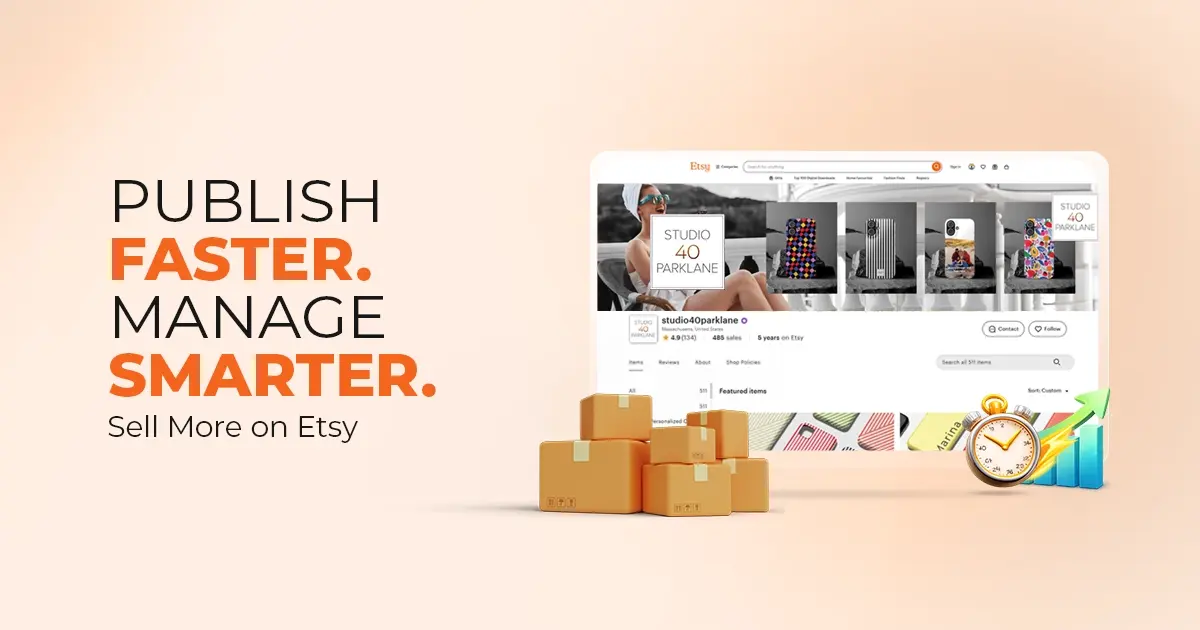
Reading Time: 4 minutesAbout the Brand: 40ParkLane LLC Studio40ParkLane is a design-led print-on-demand brand created…
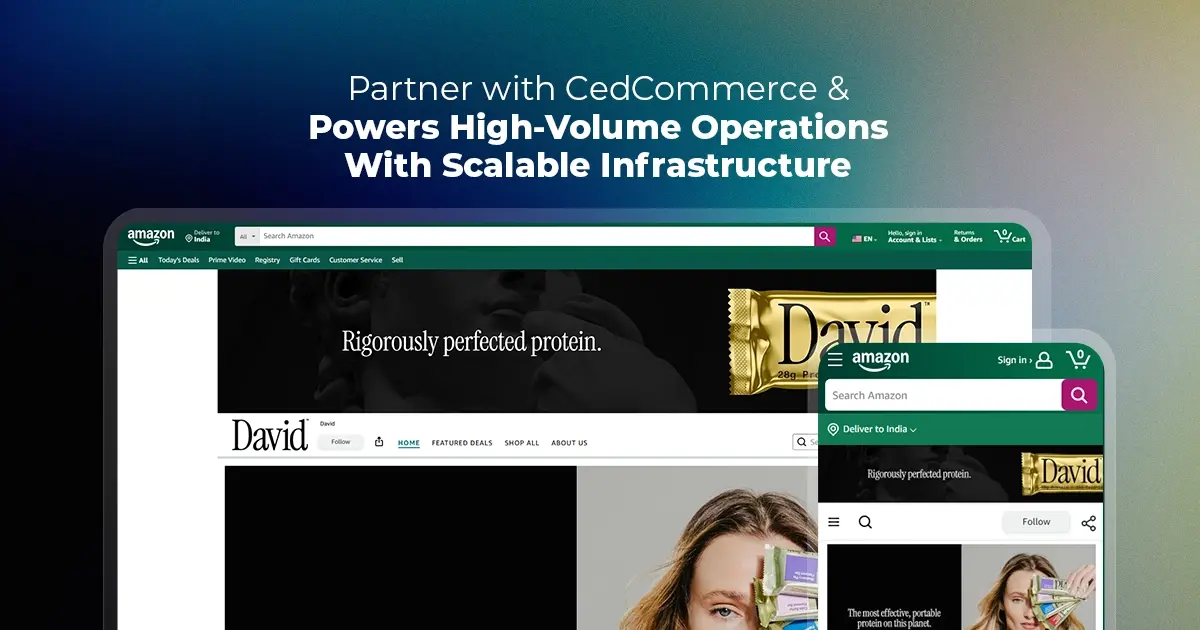
Reading Time: 3 minutesAbout the Company Brand Name: David Protein Industry: Health & Nutrition (Protein…

Reading Time: 3 minutesOnline retail spending in Germany is entering a renewed growth phase after…

Reading Time: 4 minutesTikTok Shop has released a comprehensive Beauty and Personal Care Products Policy,…

Reading Time: 4 minutesTikTok Shop has formally outlined comprehensive requirements for expiration date labeling and…

Reading Time: 3 minutesTikTok Shop is raising its sales commission for merchants across five active…

Reading Time: 11 minutesBy now you have seen your BFCM 2025 numbers. The harder question…

Reading Time: 3 minutesAbout the Brand Name: Vanity Slabs Inc Industry: Trading Slabs- Vanity Slabs…
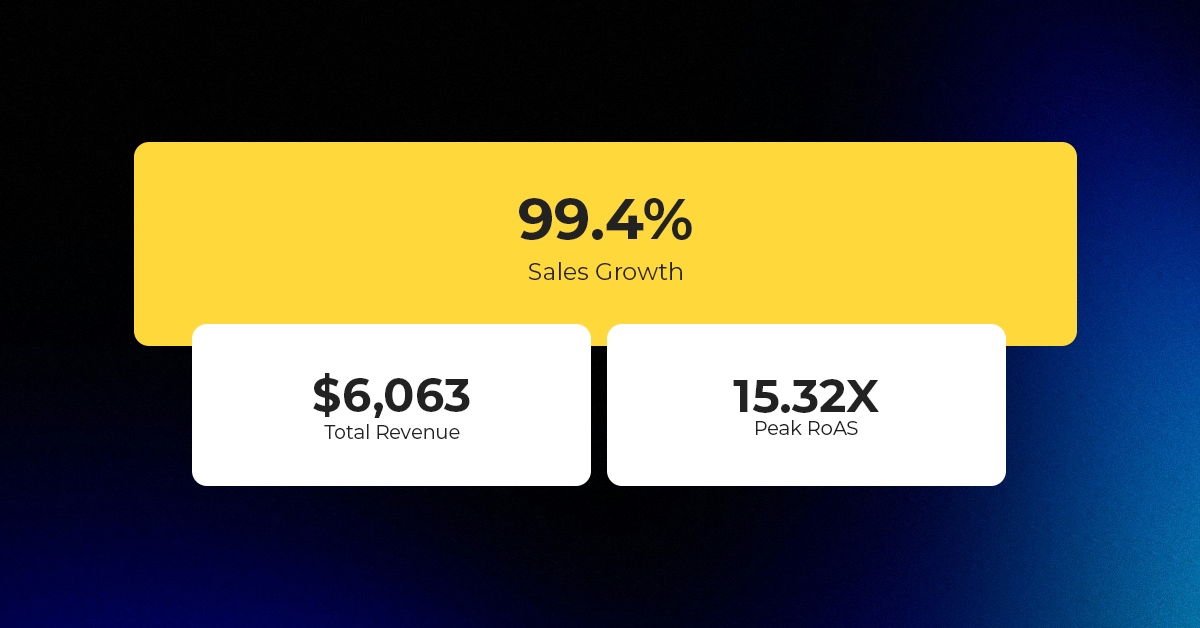
Reading Time: 2 minutesAbout the Brand Name: Ramjet.com Industry: Automotive Parts & Accessories Location: United…

Reading Time: 2 minutesAmazon is rolling out strategic referral fee reductions across five major European…
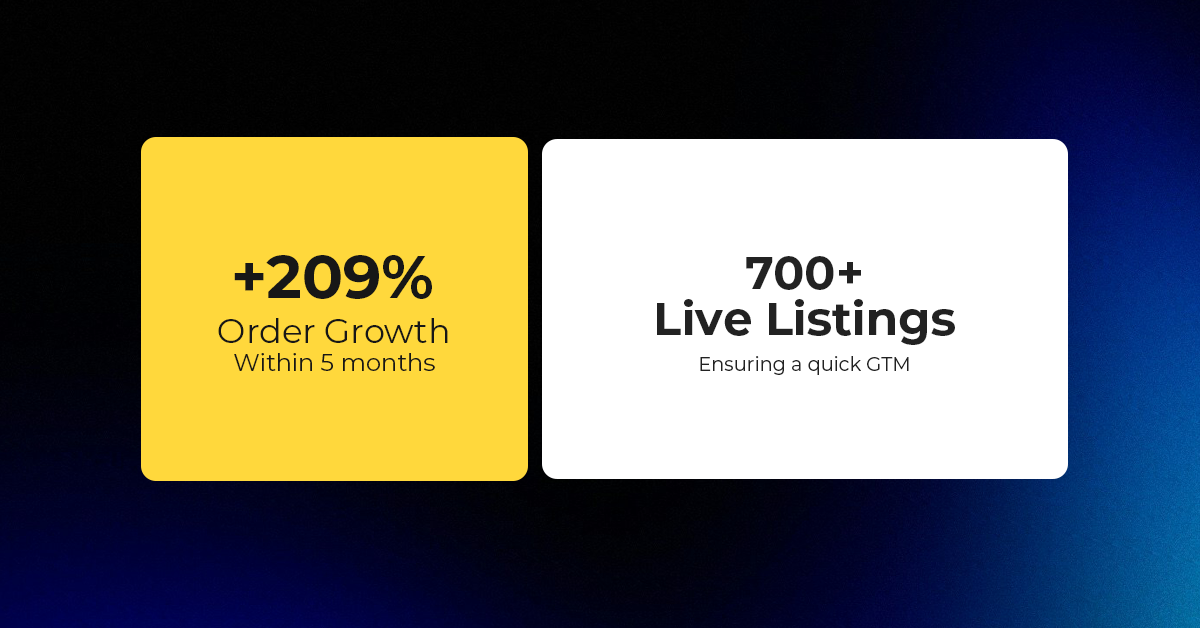
Reading Time: 4 minutesQuick Summary: Scaling Lifestyle Powersports on eBay with CedCommerce Challenge: Zero marketplace…

Reading Time: 4 minutesTikTok has surpassed 460 million users across Southeast Asia, reinforcing its position…

Reading Time: 3 minuteseBay has released its final seller news update for 2025, with a…

Reading Time: 3 minutesAmazon has clarified its stance regarding speculation around a potential breakup between…
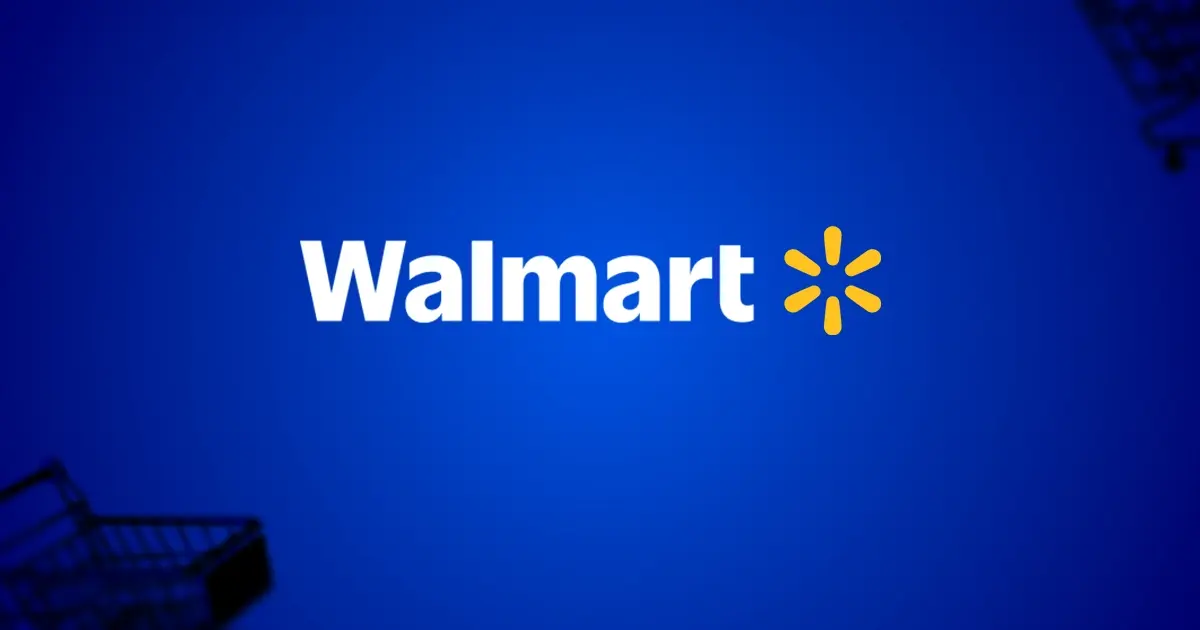
Reading Time: 4 minutesWalmart is accelerating its push into next-generation fulfillment by expanding its drone…

Reading Time: 4 minutesFaire, the fast-growing wholesale marketplace connecting independent retailers with emerging brands, has…

Reading Time: 4 minutesB2B buying in the United States is undergoing a fundamental behavioral shift…
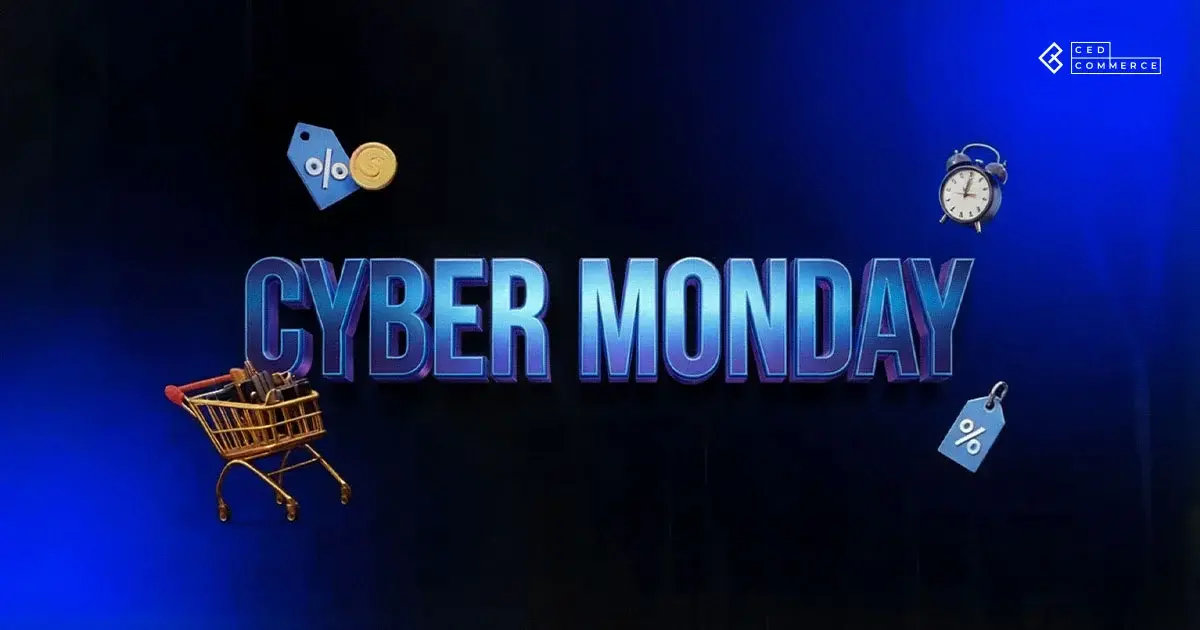
Reading Time: 3 minutesSummary Cyber Monday 2025 has officially become the largest online shopping day…

Reading Time: 2 minutesSummary Amazon kicked off December with two major developments shaping the future…

Reading Time: 2 minutesSummary Walmart has entered December with two major moves that signal a…